The road to Damascus goes through Moscow
Friday, 15.06.2012.
13:28

The road to Damascus goes through Moscow Remember that this started as a wave of non-violent demonstrations, in the best manner of the original Arab Spring. Assad had the option of responding with significant, reforms, which he toyed with; of opening negotiations; or of allowing a peaceful transition, with an honourable, comfortable exit for himself and his family. Instead, he chose to retain power by brutal repression, as his father did before him, including the indiscriminate shelling of civilians. While his elegant, British-educated wife Asma trod marbled floors in her Christian Louboutin heels, his soldiers and shabiha militia thugs battered innocent women and children into the dust. Syria's popular opposition maintained non-violent discipline for a time, in the face of extreme repression; then it lost it. With defections from the army, and weapons coming in from outside, this became first an armed rising, then a civil war, with an embattled regime, fractured opposition, Alawites, Sunnis and their external supporters, all facing off in a complex, sometimes murky conflict. As well as the massacres of civilians, we now learn, sickeningly, that the army and militia have used children as human shields. Some of the rebels, too, have reportedly recruited under-age soldiers. But as Assad himself said in a television interview before this all started, the responsibility for what happens in Syria comes back to him. If he had not chosen the path of repression, his country need not have descended into civil war. Perhaps he cried about it in private, on Asma's perfumed shoulder - he looks to me like a weak man trying to be strong. But as the poet W H Auden once wrote, inverting a famous line: 'and when he cried the little children died in the streets'. Understandably, we hear ever more cries for intervention to stop the bloodshed. Speaking at Washington's Holocaust Museum in April, the Holocaust survivor Elie Wiesel asked if anything had been learned from history, adding 'if so, how is it that Assad is still in power?' Promoting his new film about the Libyan intervention at the Cannes film festival, the French philosopher-activist Bernard-Henri Levy said 'I made this film for Syria. It is time for us to intervene.' British foreign secretary William Hague recently compared it to Bosnia. If the scale of killing and wounding of innocent civilians were the sole necessary condition for humanitarian intervention, Syria has reached that point. But the UN-approved doctrine of the responsibility to protect (R2P), which is the most rigorous and even-handed way we have to think about such challenges in today's world, also requires the action to have a reasonable prospect of success. On an informed judgement of probabilities, a feasible intervention must be more likely to make things better rather than worse in the country concerned. That condition is, alas, not met in Syria. Bernard-Henri Levy may airily declare 'it is feasible and it is doable', but what does he know? There are complications and dangers in every intervention, but most experts on Syria, the region and its wider geopolitics point to difficulties significantly larger than in Bosnia, Kosovo, Sierra Leone or Libya. This is not just a question of the size, equipment and training of the forces of repression at Assad's disposal, and the regional and sectarian faultlines inside the country. There is also the direct involvement of regional and global powers, which overtly and covertly support different sides in the civil war. Most obviously, Shiite Iran and Putinite Russia are directly sustaining Assad's regime, with its Alawite power base, while Sunni powers such as Saudi Arabia and Qatar are reportedly funding arms for the rebels. The Iranian foreign minister yesterday said Tehran and Moscow are 'very close' on the Syria issue, at a joint press conference during which the Russian foreign minister accused the United States of supplying arms to the Syrian opposition. He was responding to Hillary Clinton's charge that Russia is supplying attack helicopters to the Assad regime. Meanwhile, calls for military intervention grow ever louder in the US Congress and media, though not in the Pentagon, which makes a sober assessment of what that would involve. In Turkey, Syria's neighbour, there is animated discussion of no-fly zones and humanitarian safe havens, but Turkey's leaders have also become more cautious as they work through what that would mean. One step could so easily lead to another; what started as a minimal humanitarian intervention could morph into a messy, long drawn-out partial occupation, or even a kind of war by proxy. At the same time, the purely political options being canvassed seem either feeble or impossible. Kofi Annan's peace plan is in tatters. Tighter sanctions on the Assad family and its henchpersons may mean a dip in on-line orders for Christian Louboutin shoes; they will not stop a dictator with his back to the wall, fighting to avoid the lynch-death of Muammar Gaddafi. Some suggest an international popular front for peace in Syria, with the United States and Saudi Arabia working hand-in-glove with Iran and Russia. This seems as likely as the Pope announcing his impending marriage to Madonna. A more united Syrian opposition, committed to a non-violent, negotiated transition, is a great idea for yesterday and tomorrow, but not a solution for today - in the midst of a civil war. The Russian position on Syria is shocking, mendacious and indefensible. The Russians have repeatedly blocked efforts to get UN authority for stronger peace-making measures, using hypocritical arguments that barely conceal their own national interest in keeping their military, economic and political foothold in the Middle East. They trained the Syrian army that is killing civilians and now - if Clinton is to be believed - they are supplying attack helicopters to help Assad's men kill even more. Have they no shame? In the case of Putin's Russia, this question answers itself. Have they no other national interests, which might eventually outweigh this one? Now that is a question worth asking. If we are really serious about our commitment to stopping the slaughter in Syria, we in the West have to consider if there are any larger carrots and sticks we can still show Russia, even at some cost to ourselves, so as to achieve a shift in its position. The road to Damascus goes through Moscow, and Putin's conversion will not be worked by any God. timothygartonash.com Timothy Garton Ash is Professor of European Studies at Oxford University, a Senior Fellow at the Hoover Institution, Stanford University, and the author, most recently, of Facts are Subversive: Political Writing from a Decade Without a Name. A file photo of Russian Mi-24 helicopter gunships, allegedly supplied to Syria (Beta(AP) I hope that one day ex-president Bashar al-Assad will stand before the International Criminal Court charged with crimes against humanity. None of the violence now being used by other forces in what has become Syria's civil war can diminish his primary responsibility. Timothy Garton Ash "I hope that one day ex-president Bashar al-Assad will stand before the International Criminal Court charged with crimes against humanity. None of the violence now being used by other forces in what has become Syria's civil war can diminish his primary responsibility."
The road to Damascus goes through Moscow
Remember that this started as a wave of non-violent demonstrations, in the best manner of the original Arab Spring. Assad had the option of responding with significant, reforms, which he toyed with; of opening negotiations; or of allowing a peaceful transition, with an honourable, comfortable exit for himself and his family. Instead, he chose to retain power by brutal repression, as his father did before him, including the indiscriminate shelling of civilians. While his elegant, British-educated wife Asma trod marbled floors in her Christian Louboutin heels, his soldiers and shabiha militia thugs battered innocent women and children into the dust.Syria's popular opposition maintained non-violent discipline for a time, in the face of extreme repression; then it lost it. With defections from the army, and weapons coming in from outside, this became first an armed rising, then a civil war, with an embattled regime, fractured opposition, Alawites, Sunnis and their external supporters, all facing off in a complex, sometimes murky conflict. As well as the massacres of civilians, we now learn, sickeningly, that the army and militia have used children as human shields. Some of the rebels, too, have reportedly recruited under-age soldiers. But as Assad himself said in a television interview before this all started, the responsibility for what happens in Syria comes back to him.
If he had not chosen the path of repression, his country need not have descended into civil war. Perhaps he cried about it in private, on Asma's perfumed shoulder - he looks to me like a weak man trying to be strong. But as the poet W H Auden once wrote, inverting a famous line: 'and when he cried the little children died in the streets'.
Understandably, we hear ever more cries for intervention to stop the bloodshed. Speaking at Washington's Holocaust Museum in April, the Holocaust survivor Elie Wiesel asked if anything had been learned from history, adding 'if so, how is it that Assad is still in power?' Promoting his new film about the Libyan intervention at the Cannes film festival, the French philosopher-activist Bernard-Henri Levy said 'I made this film for Syria. It is time for us to intervene.' British foreign secretary William Hague recently compared it to Bosnia.
If the scale of killing and wounding of innocent civilians were the sole necessary condition for humanitarian intervention, Syria has reached that point. But the UN-approved doctrine of the responsibility to protect (R2P), which is the most rigorous and even-handed way we have to think about such challenges in today's world, also requires the action to have a reasonable prospect of success. On an informed judgement of probabilities, a feasible intervention must be more likely to make things better rather than worse in the country concerned.
That condition is, alas, not met in Syria. Bernard-Henri Levy may airily declare 'it is feasible and it is doable', but what does he know? There are complications and dangers in every intervention, but most experts on Syria, the region and its wider geopolitics point to difficulties significantly larger than in Bosnia, Kosovo, Sierra Leone or Libya.
This is not just a question of the size, equipment and training of the forces of repression at Assad's disposal, and the regional and sectarian faultlines inside the country. There is also the direct involvement of regional and global powers, which overtly and covertly support different sides in the civil war. Most obviously, Shiite Iran and Putinite Russia are directly sustaining Assad's regime, with its Alawite power base, while Sunni powers such as Saudi Arabia and Qatar are reportedly funding arms for the rebels. The Iranian foreign minister yesterday said Tehran and Moscow are 'very close' on the Syria issue, at a joint press conference during which the Russian foreign minister accused the United States of supplying arms to the Syrian opposition.
He was responding to Hillary Clinton's charge that Russia is supplying attack helicopters to the Assad regime. Meanwhile, calls for military intervention grow ever louder in the US Congress and media, though not in the Pentagon, which makes a sober assessment of what that would involve. In Turkey, Syria's neighbour, there is animated discussion of no-fly zones and humanitarian safe havens, but Turkey's leaders have also become more cautious as they work through what that would mean. One step could so easily lead to another; what started as a minimal humanitarian intervention could morph into a messy, long drawn-out partial occupation, or even a kind of war by proxy.
At the same time, the purely political options being canvassed seem either feeble or impossible. Kofi Annan's peace plan is in tatters. Tighter sanctions on the Assad family and its henchpersons may mean a dip in on-line orders for Christian Louboutin shoes; they will not stop a dictator with his back to the wall, fighting to avoid the lynch-death of Muammar Gaddafi. Some suggest an international popular front for peace in Syria, with the United States and Saudi Arabia working hand-in-glove with Iran and Russia. This seems as likely as the Pope announcing his impending marriage to Madonna. A more united Syrian opposition, committed to a non-violent, negotiated transition, is a great idea for yesterday and tomorrow, but not a solution for today - in the midst of a civil war.
The Russian position on Syria is shocking, mendacious and indefensible. The Russians have repeatedly blocked efforts to get UN authority for stronger peace-making measures, using hypocritical arguments that barely conceal their own national interest in keeping their military, economic and political foothold in the Middle East. They trained the Syrian army that is killing civilians and now - if Clinton is to be believed - they are supplying attack helicopters to help Assad's men kill even more.
Have they no shame? In the case of Putin's Russia, this question answers itself. Have they no other national interests, which might eventually outweigh this one? Now that is a question worth asking. If we are really serious about our commitment to stopping the slaughter in Syria, we in the West have to consider if there are any larger carrots and sticks we can still show Russia, even at some cost to ourselves, so as to achieve a shift in its position. The road to Damascus goes through Moscow, and Putin's conversion will not be worked by any God.
timothygartonash.com
Timothy Garton Ash is Professor of European Studies at Oxford University, a Senior Fellow at the Hoover Institution, Stanford University, and the author, most recently, of Facts are Subversive: Political Writing from a Decade Without a Name.










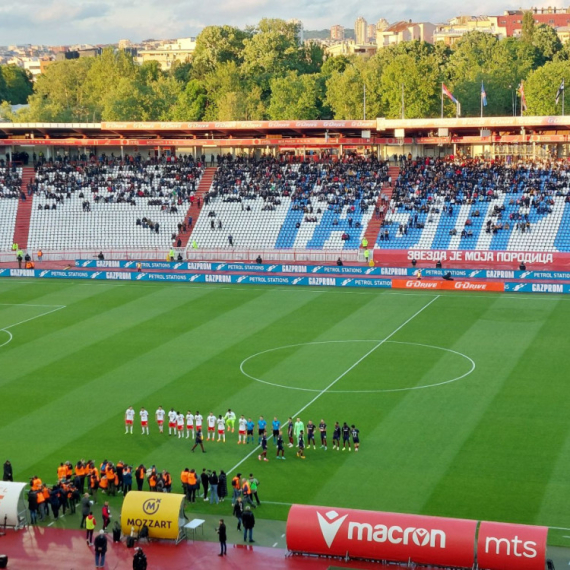
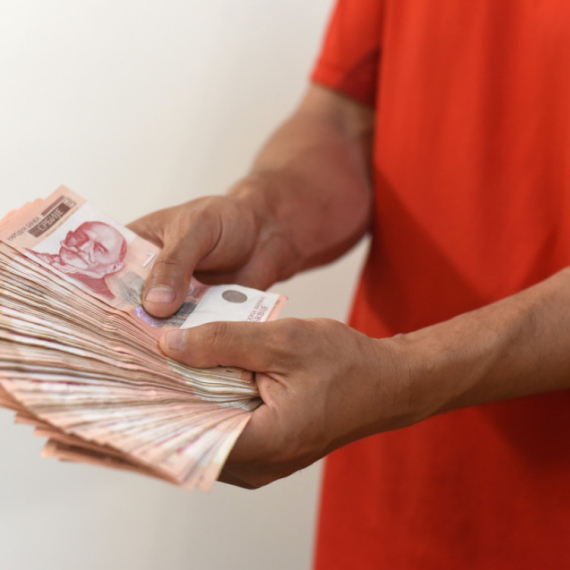


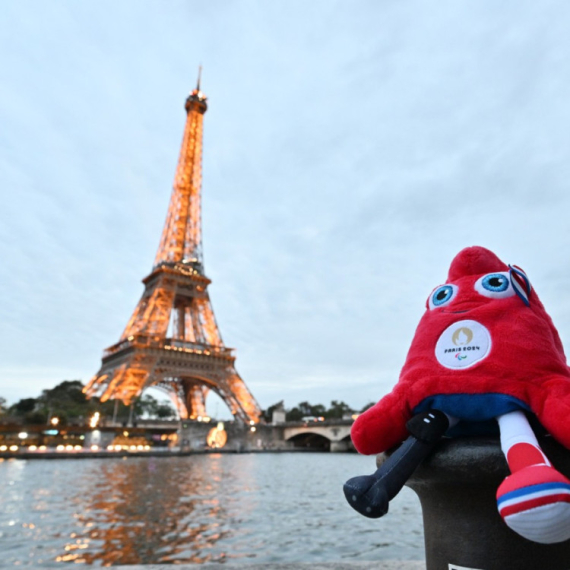
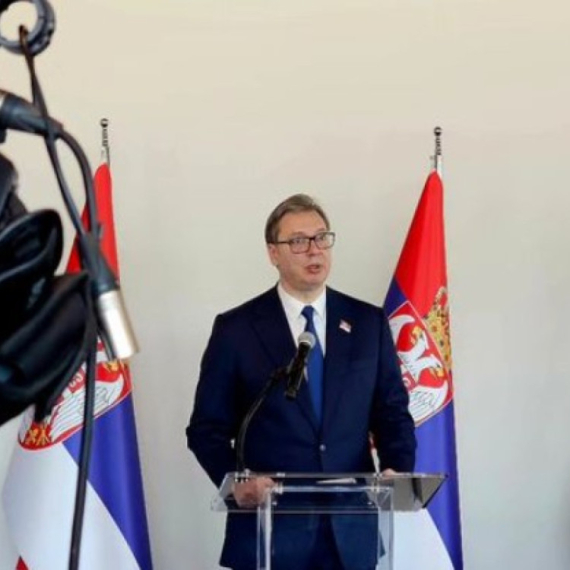
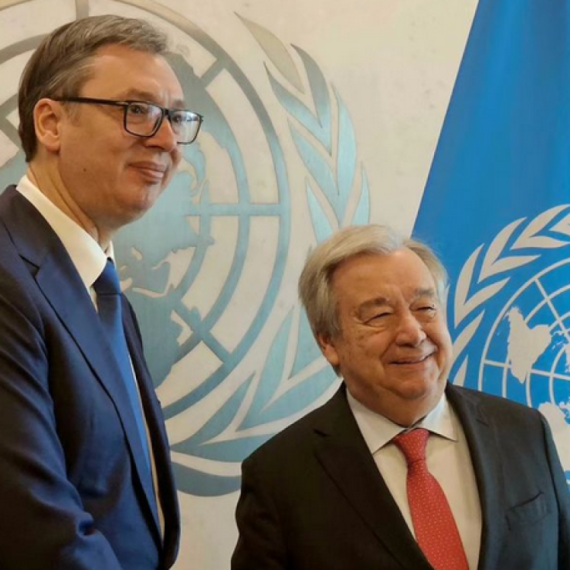
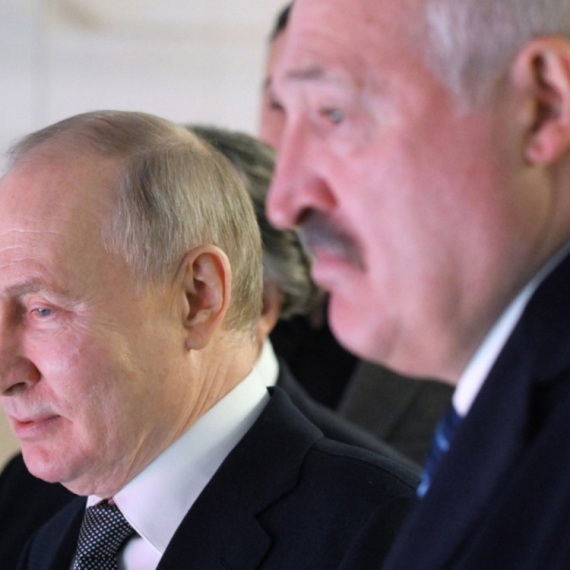




































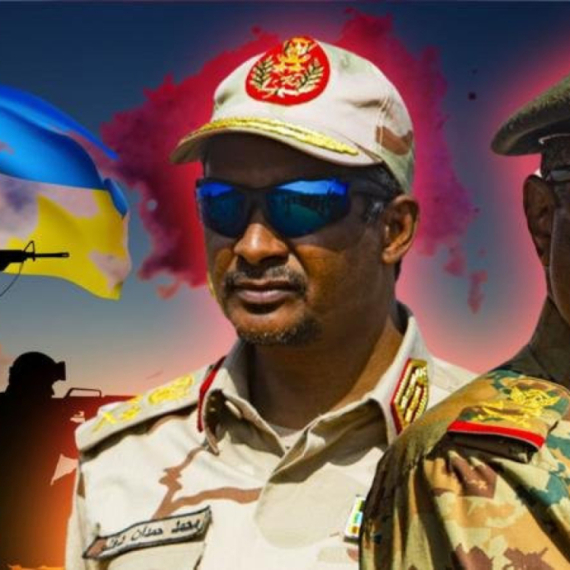

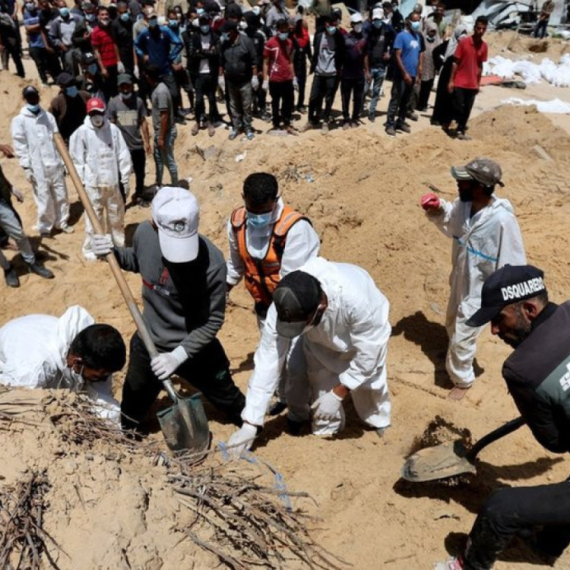

Komentari 4
Pogledaj komentare